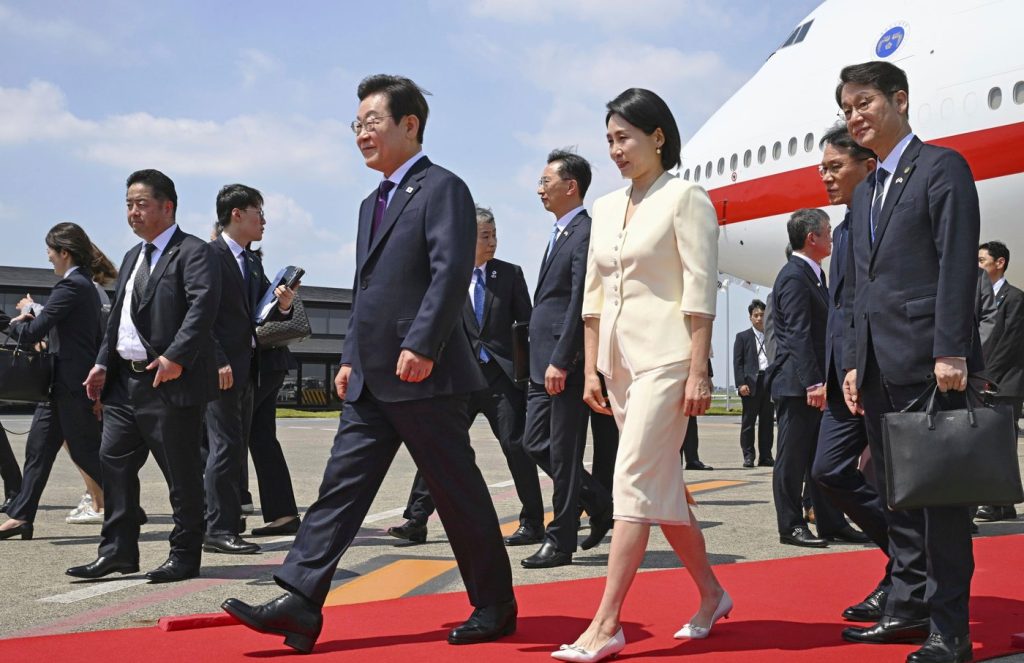TOKYO (AP) – South Korean President Lee Jae Myung arrived in Tokyo for his inaugural full summit with Japanese Prime Minister Shigeru Ishiba. This visit, taking place on August 23, 2025, aims to highlight the improving relations between the two nations, who are now confronted with shared challenges predominantly stemming from their mutual ally, the United States.
Lee's journey to Tokyo represents a strategic move, positioning Japan ahead of the United States in his diplomatic agenda. This approach allows him to adequately prepare for a crucial first summit with U.S. President Donald Trump focused on trade and defense matters. Lee's prioritization of Japan is well-received, signaling to Japanese officials that he considers their partnership significant for both bilateral and trilateral relations with Washington.
The summit holds particular importance for Ishiba, who faces mounting pressure from right-wing factions within his governing party following its electoral defeat in July. A successful summit with Lee may bolster his standing within the party. Rintaro Nishimura, an associate at The Asia Group’s Japan branch, noted that the timing of Lee's visit illustrates a pragmatic diplomatic strategy, emphasizing the significance of Japan in Lee's foreign policy framework.
Both leaders, who last engaged during the Group of Seven summit in June, aim to use this meeting to reinforce their friendship and pursue exchanges as they celebrate the 60th anniversary of the normalization of diplomatic ties between their countries. Potential outcomes from their discussions may encompass fast-track entry visas for South Korean travelers and the establishment of working holiday programs.
Apart from fostering bilateral ties, the leaders are expected to deliberate on mutual concerns, such as North Korea's ongoing nuclear and missile development and China's increasing assertiveness in the region. Ishiba previously reached a tariff agreement with Trump ahead of South Korea, paving the way for collaborative efforts with Lee before his upcoming summit in the U.S.
The summit occurs shortly after a series of conciliatory gestures between the two nations. On August 15, during his address marking the liberation of Korea from Japanese colonial rule (1910-1945), Lee called for a focus on future-oriented ties while urging Japan to confront unresolved historical issues and foster trust. Additionally, he reiterated his commitment to honoring past agreements with Japan regarding forced labor and the controversial 'comfort women' issue, despite ongoing resentment among many Koreans.
Ishiba has expressed remorse regarding Japan’s wartime actions, acknowledging the suffering inflicted on Asian victims. This marked a notable shift in tone during his address on the anniversary of Japan's WWII surrender, where he used the term "remorse" for the first time since it was removed from such speeches by former Prime Minister Shinzo Abe in 2013.
This summit not only signifies a potential thawing in relations between South Korea and Japan, but also reflects broader regional dynamics as both countries seek to navigate challenges in the context of their alliances and historical narratives.










